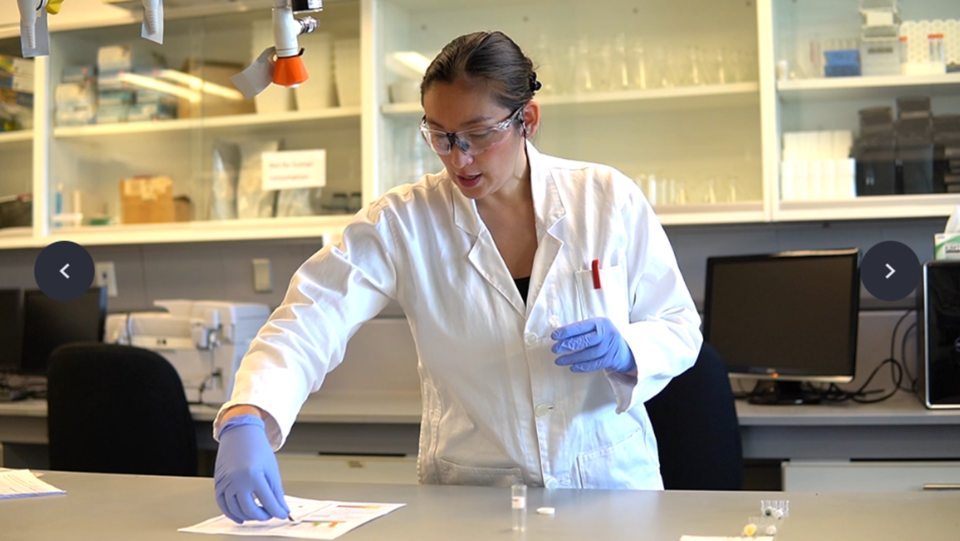Algoma University's Elaine Ho-Tassone has been awarded the Journal of Great Lakes Research (JGLR) Elsevier Early Career Scientist Award for a groundbreaking journal article based on her research in the field of freshwater science.
This award recognizes Dr. Ho-Tassone's early career contributions to understanding Great Lakes ecosystems. The Chandler-Misener Review Committee of the International Association for Great Lakes Research (IAGLR) evaluated Ho-Tassone's paper for its exceptional originality, substantial contribution to the field and exemplary presentation.
“The work challenges the scientific community to acknowledge limitations of conventional practice and effects of colonialism on our ability to acquire, generate and apply knowledge regarding our waterways,” Ho-Tassone said in a news release issued today by Algoma University.
For more information, see the full release below:
Elaine Ho-Tassone, PhD, a rising star in the field of freshwater science, has been awarded the Journal of Great Lakes Research (JGLR) Elsevier Early Career Scientist Award for a groundbreaking journal article based on her research.
The award, presented by the JGLR in collaboration with Elsevier, recognizes Ho-Tassone's exceptional early career contributions to understanding Great Lakes ecosystems. The Chandler-Misener Review Committee of the International Association for Great Lakes Research (IAGLR) evaluated Ho-Tassone's paper for its exceptional originality, substantial contribution to the field, and exemplary presentation.
“The work challenges the scientific community to acknowledge limitations of conventional practice and effects of colonialism on our ability to acquire, generate, and apply knowledge regarding our waterways,” said Ho-Tassone.
The award-winning paper Collaborative watershed analysis: A ‘groupthink’ assessment of cumulative effects emerged as a top piece among many early-career scientist publications across the United States and Canada. The paper appears in a special issue of the Journal titled “Supplement on Bridging Indigenous and non-Indigenous Knowledge Systems.”
A notable aspect of Ho-Tassone's achievement is her work's seamless braiding of Indigenous and non-Indigenous perspectives through her newly developed “collaborative watershed analysis” approach.
“We are aiming to incorporate diverse ways of knowing—Indigenous and non-Indigenous—in assessing human impacts on the Great Lakes. These perspectives were integrated through research partnerships with Haudenosaunee youth and mentors, members of the public, and contributions from current water managers and scientists,” said Ho-Tassone. “Dr. Andrew Judge significantly contributed to the publication's narrative by sharing his Anishinaabe perspective, showcasing the inclusive approach that enriches the study's depth and relevance while involving community members meaningfully in the research process.”
Other collaborators in the work include Simon Courtenay, PhD, and Andrew Trant, PhD, from the University of Waterloo, who supervised Ho-Tassone’s research and who are co-authors on the publication. Ho-Tassone’s current projects include partnerships and collaborations with more than 15 local, regional and national organisations, including Missanabie Cree First Nation, the Sault Ste. Marie Region Conservation Authority, Water Rangers, Great Lakes DataStream, Science North, and more.
“Dr. Ho-Tassone's accomplishment really shines a light on her unique talents and is a credit to Algoma University's Special Mission, which calls on us to bridge divides in education between Anishinaabe and non-Anishinaabe cultures and ways of knowing. This is a concrete example of working together across fields and cultures to tackle tough environmental issues in ways that truly benefit our local communities,” said Dr. Laurie Bloomfield, Acting Dean of Science at Algoma University. “Even before completing her work, Dr. Ho-Tassone's presentation of early findings earned her the prestigious “Our Water - Our Life - The Most Valuable Resource” Award from the Canadian Water Resources Association in 2019. We're all eager to see what this bright star does next.”
